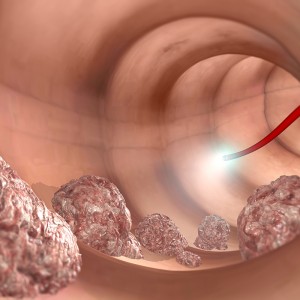 In a recent study, researchers were able to characterize genetic alterations associated with liver metastasis from primary colorectal cancer . The new finding, published in the online version of the journal Genome Biology, can help to develop personalized tests for the diagnosis of colorectal cancer based on the genetic alterations present in each patient’s colon tumor. The team includes members of the National Cancer Centre Singapore (NCCS), of the Singapore General Hospital (SGH), Duke-NUS Graduate Medical School (Duke-NUS), of the A*STAR’s Genome Institute of Singapore (GIS) and of the Cancer Science Institute Singapore (CSI Singapore) of the National University of Singapore (NUS.
In a recent study, researchers were able to characterize genetic alterations associated with liver metastasis from primary colorectal cancer . The new finding, published in the online version of the journal Genome Biology, can help to develop personalized tests for the diagnosis of colorectal cancer based on the genetic alterations present in each patient’s colon tumor. The team includes members of the National Cancer Centre Singapore (NCCS), of the Singapore General Hospital (SGH), Duke-NUS Graduate Medical School (Duke-NUS), of the A*STAR’s Genome Institute of Singapore (GIS) and of the Cancer Science Institute Singapore (CSI Singapore) of the National University of Singapore (NUS.
Despite the fact that the majority of colorectal cancer patients are diagnosed in an early stage of the disease, a large proportion still develop cancer recurrence in the form of liver metastasis. This typically occurs one to three years after colon surgery. However, if metastases are identified in an early stage, treatment is still possible upon surgical removal.
To characterize the genetic changes associated with colorectal cancer liver metastasis, the team used innovative DNA sequencing methods, some of them developed in-house. These include specialized computational and laboratory techniques that were developed at GIS and Duke-NUS.
The team scanned a total of 750 genes and were able to verify that each individual cancer had its own exclusive set of about 15 genetic mutations. Despite some degree of genetic mutations’ overlap between two distinct patients, most alterations were similar to those found in the same patients’ liver metastasis. Based on these results, the team intends to develop novel diagnostic tests that can identify cancer progression at an early stage based on the genetic information contained in the tumors removed upon colon surgery.
“Cancer survivors dread having their cancer recur. Even if this happens, we still have a chance to cure our colorectal cancer patients provided we diagnose it early. The research findings can have a significant impact on our patients’ quality of life, and improve the precision of the treatment they receive,” said study co-author Associate Professor Tang Choong Leong, Head, Department of Colorectal Surgery at SGH in a recent news release.
“Based on this study, we intend to customise a diagnostic test for each colorectal cancer individual. We will use the unique set of mutations present in that individual’s cancer, as a barcode or thumbprint that we can exploit as innovative diagnostics to monitor for cancer recurrence and diagnose it early,” explained Dr. Iain Tan, co-lead author of the study who is a Consultant Medical Oncologist at NCCS and also a clinician scientist at GIS in the news release.
To further develop the new diagnostic test, the team received funding from the National Medical Research Council (NMRC). According to Dr. Tan, this R&D work will take many years, however he is confident that this new finding will help to accelerate the progress.
This research was conducted in collaboration with the POLARIS program, a national program in Singapore supported by A*STAR that seeks to translate local research discoveries to improve diagnosis and treatment of diseases. “POLARIS continues to seek opportunities to work with leading local researchers to enable the transition of their research findings from bench to bedside,” explained Prof. Patrick Tan from Duke-NUS, who is a co-lead author of the study and the POLARIS Program Director.


